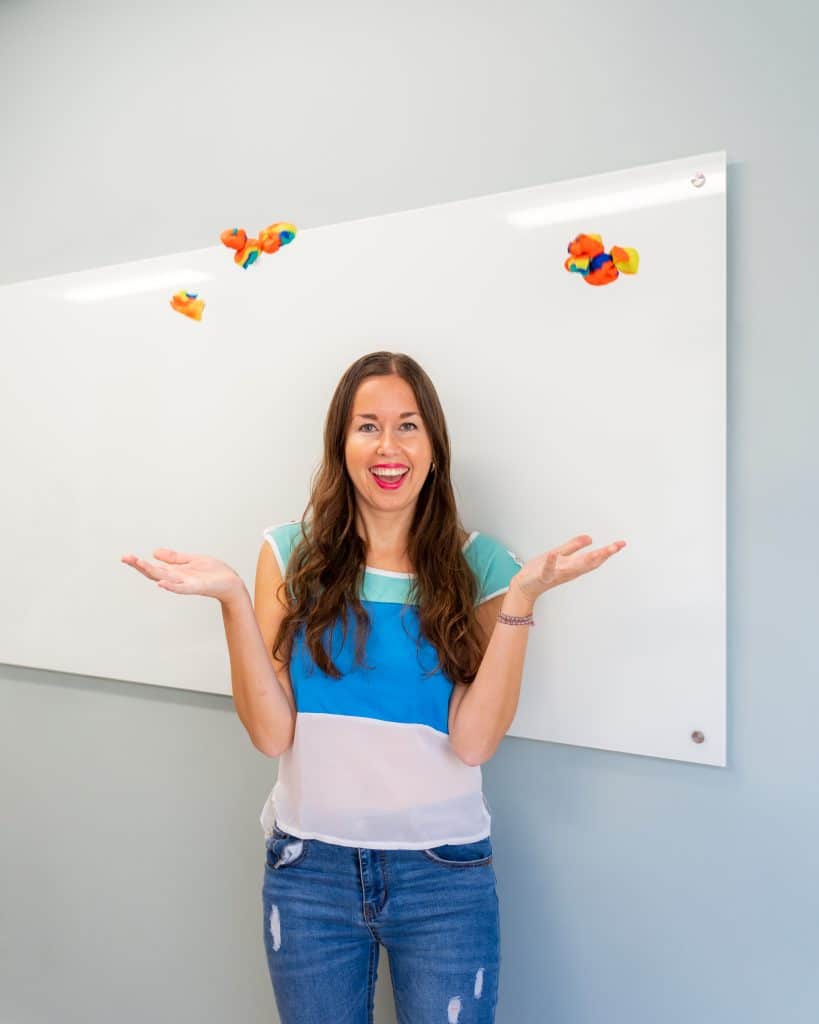
How to Help Our Kids Cultivate a Healthy Relationship with Food with Rachel Rothman, [Part 1]
We all want to help our kids cultivate a healthy relationship with food, but this can be easier said than done. Many of us are still repairing our own relationship with food. Add in changing nutrition data, emotional elements, and comments and advice from family and friends and this topic can become a minefield.
I’ve invited Rachel Rothman to share her expertise and help us navigate this complex topic. Rachel is a registered dietitian and childhood nutrition expert with a background in food science.
Our conversation isn’t solely focused on what to feed your kids (although we do touch on that), it encompasses navigating the challenges and stresses regarding picky eaters, mealtimes, and sugary snacks and desserts.
Since it is such an expansive topic, we split the episode into two parts so that you can take time to reflect on what you learn. Make sure that you’re subscribed to the podcast so that you’ll know when the next episode publishes.
You will want to hear this episode if you are interested in…
- What led her to do what she is doing today [5:22]
- What is a food scientist [8:38]
- How to talk about food with kids to cultivate a healthy relationship [11:40]
- How to deal with the sweets and treats [19:20]
- Dinnertime questions [28:34]
- Do you have to finish dinner if you want dessert? [36:00]
How Rachel Rothman Became a Pediatric dietitian
Rachel Rothman first saw her relationship with food change at age nine when she was told to go on a diet. This suggestion gave her the impression that there was something wrong with her body which led to low self-esteem, poor body image, and an unhealthy relationship with food.
Becoming a pediatric dietitian was her way to help kids and families combat negative experiences and cultivate a healthy relationship with food from the start.
After getting a bachelor’s in food science and a master’s in nutrition education, Rachel describes the difference between the two disciplines. Food science is the science of food before we eat it and nutrition is the science of what food does for the body after we eat it.
Rachel started Nutrition in Bloom five years ago to combine her extensive training and practical experience to support families as they change their relationships with food, trust their bodies, and enjoy the food they’re eating.
Creating a Healthy Relationship with Food Starts with Conversations at Home
Many of us grew up with the negative messaging surrounding food stemming from the diet culture of the 80s and 90s. Even though we know better now it can still be a challenge to overcome our ingrained mindsets about food.
Our relationship with food impacts our whole life. Food not only provides nourishment, but it also affects our mood, immune system, and quality of life. This is why giving our kids the best start is important by encouraging them to develop a positive relationship with food.
Rachel recommends keeping a positive discussion around food by putting all food on a level playing field and removing the stigma of labeling food as good or bad.
Create healthy discussions around food by talking about the sensory properties of food–taste, feel, smell, and visual. Rather than looking at food and nutrition from a fixed mindset, open up and approach the subject from a growth mindset. Remember it’s never too late to change the conversation about food.
Don’t Put So Much Pressure on Yourself to Get Mealtimes ‘Right’
Under Ellen Satter’s division of responsibility, parents are responsible for the what, when, and where of eating. Children are then responsible for deciding how much and whether to eat. This gives children a say in their food choices.
A nourishing relationship with food starts at mealtimes. We put such pressure on ourselves and our families to get dinner right, but dinner is only one meal of the day and not necessarily the most important.
Dinner can be a challenging time–family traditions, culture, and exhaustion can all create a stressful atmosphere around the table. It may not be realistic to try and create an ideal family meal at this time. Not everyone may be hungry or ready to eat. One way to improve the atmosphere at the dinner table is to take away the pressure.
Listen in to hear what Rachel thinks about dessert and snacks–it may be different than what you would expect from a pediatric dietitian.
Join Lindywell to get our fantastic, family-friendly, quick, and easy recipes.
Resources & People Mentioned
Connect with Rachel
Follow Lindywell
Join Lindywell
Subscribe to The Balanced Life
share this post
Helping You Break Free!
Get your weekly delivery of inspiration—Pilates, nourishment,
& mindfulness—changing your relationship with food and your body.





